Historically, research and society has focused on autistic individuals having a lack of empathy and struggling to understand social communication/interaction concepts, like apologising. HOWEVER, now that our understanding of autism is growing, in particular when it comes to masking, and autistic women, something that is also being recognised is OVER-apologising. This is something I have personally noticed a lot in myself, and while I initially didn’t think it was a problem, I have learnt that constantly over apologising actually reinforces low self esteem and self worth, and I know it’s something lots of others also struggle with.
So why do we apologise so much? From a young age we learn that apologies are essential social currency. People say ‘sorry’ when they bump into someone, when they speak out of turn, when they make a mistake, but also when they’ve hurt others, and to ask for forgiveness. There’s nothing wrong with saying sorry, except we shouldn’t feel we have to do it all the time – when we don’t understand a joke, when we stim in public, when we ask a question, when we say we’re autistic – or for simply existing.
At the heart of this constant apologising is not just a desire to be polite. For many of us, over-apologizing becomes a reflex, rooted in shame and trauma, and a lifetime of being told — directly or indirectly — that we are too much, too different, too inconvenient, or too wrong.
Some of the reasons we apologise so much:
- Masking – it’s a quick way of apologising for any social mistakes we think we’ve made
- Anxiety and relationships – due to previous negative expeiences, we often apologise to avoid judgement or rejection from friends, family, partners
- Shame – we feel inadequate for our differences, because society still to some extent teaches us we aren’t ‘normal’, and so we apologise simply for being ourselves, and view ourselves as a problem
- Social norms – apologising can feel an easier way to deal with communicating differently, rather than explaining how we work; we don’t want to ask other people to be accomodating
- Misinterpretation – autistic communication styles can also be more direct and literal, and are frequently misinterpreted, so sometimswe are told we’re rude when we’re just being honest, or insensitive when we’re simply speaking plainly.
What I’ve noticed is I am happy to adjust for other people and that lots of people will do things a certain way or do something that I do, and they don’t apologise..but I do. I apologise for needing five more minutes, I apologise if I need to use the toilet, I recall recently apologising at a friends house when we got some food and they forgot to give me cutlery, so I had to ask for it! A lot of my sentences begin with ‘I’m so sorry but…’
When we apologise for harmless behaviors, for needing clarification, for reacting in a way others don’t understand — we’re basically apologising for being autistic. We’re apologizing for being ourselves.
This reinforces a false narrative that we are inherently flawed, that our needs and differences are a burden. It sends a message — to others and to ourselves — that we are less worthy, less valid, and less human.
We do not need to apologise for existing. We are not required to shrink ourselves to be acceptable. And every unnecessary apology chips away at our confidence, our dignity, and our right to take up space in this world.
How can we tackle this?
- Notice it – start trying to be aware of when you apologise, and try to think about if you really need to
- Ask yourself ‘Did I actually do something wrong?’, and ‘Would I care if someone did this or needed this from me? Would they apologise?’
- Replace it with – ‘thank you for being patient/understanding’ or just saying ‘thank you’, or explaining why you’re doing something a certain way
- Validate your needs – you’re allowed to take up space, you’re allowed to have boundaries
- Be kind to yourself!!
Do you relate?
Research used
https://www.salon.com/2023/11/29/sorry-not-sorry-the-link-between-gender-autism-and-over-apologizing/
https://www.sciencedirect.com/science/article/pii/S175094672200188X
https://pmc.ncbi.nlm.nih.gov/articles/PMC5040731/
(Right click and open in new tab to see the images larger!)
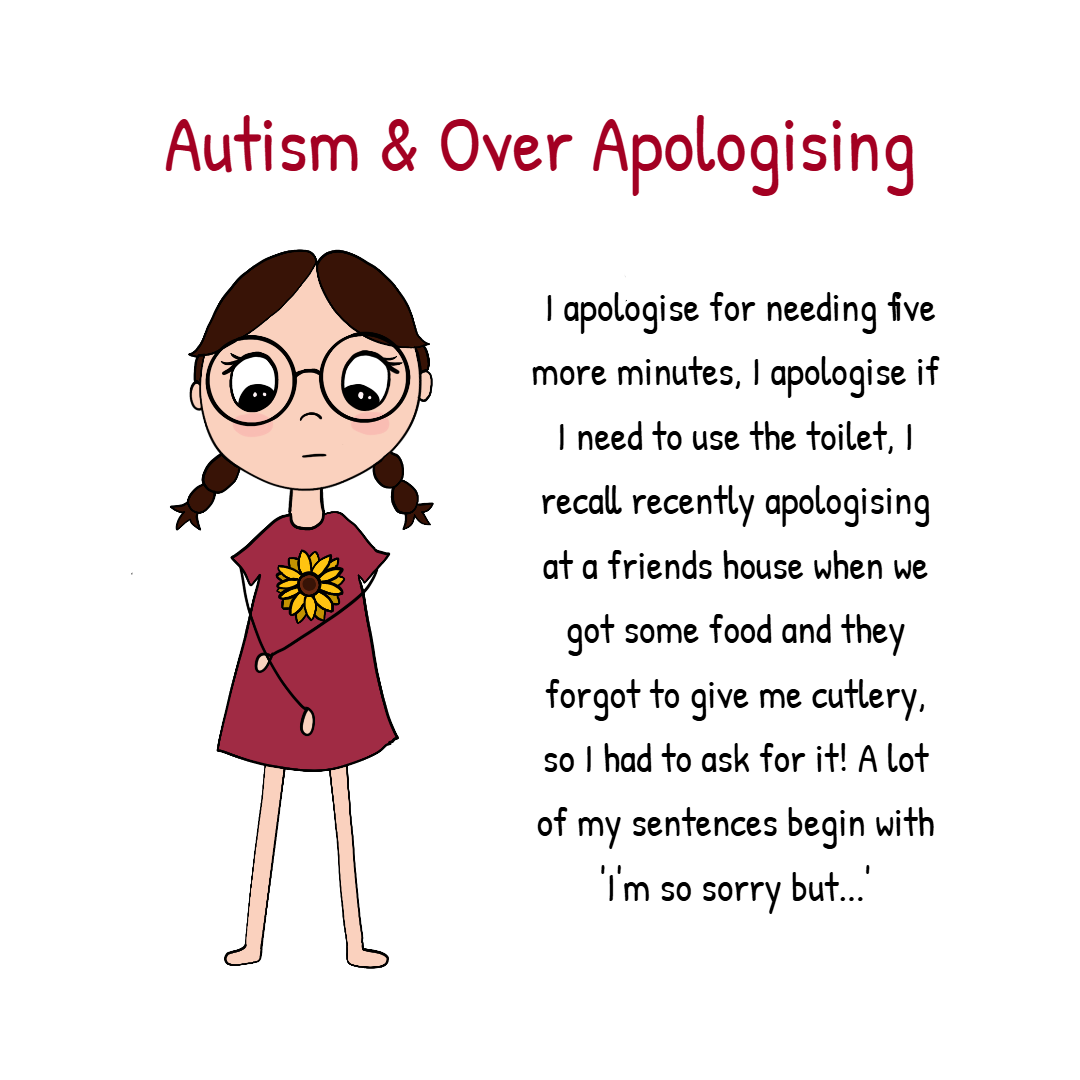
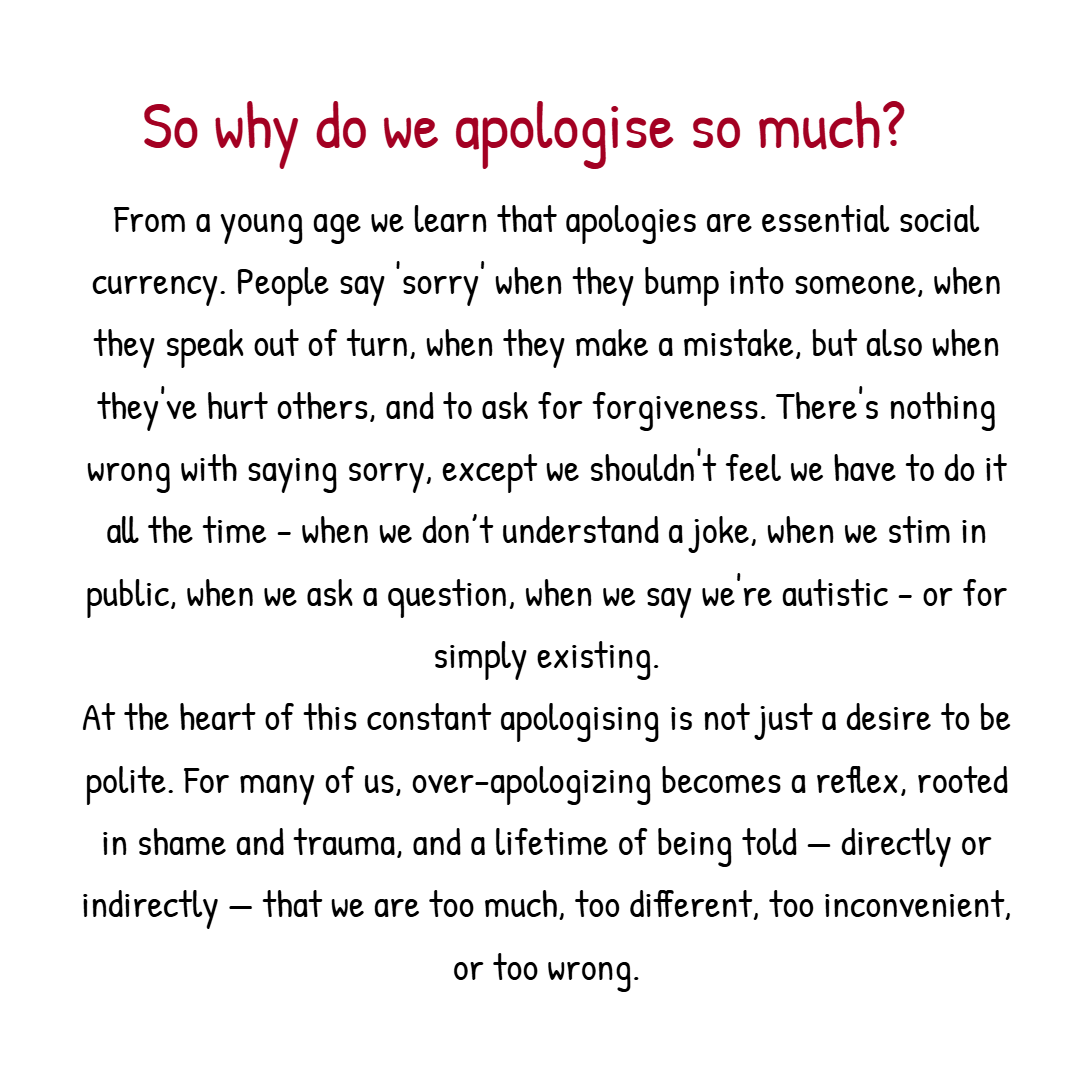
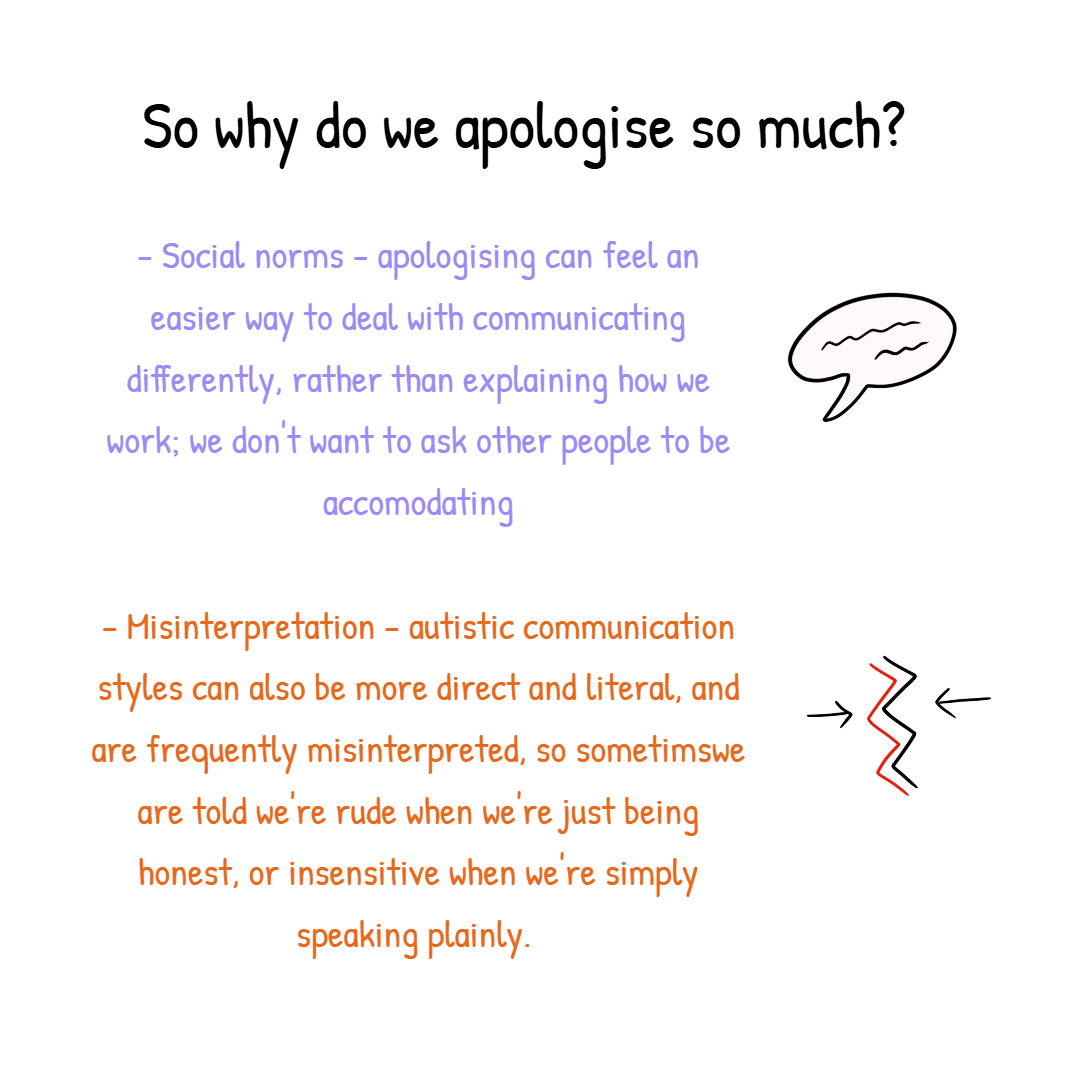
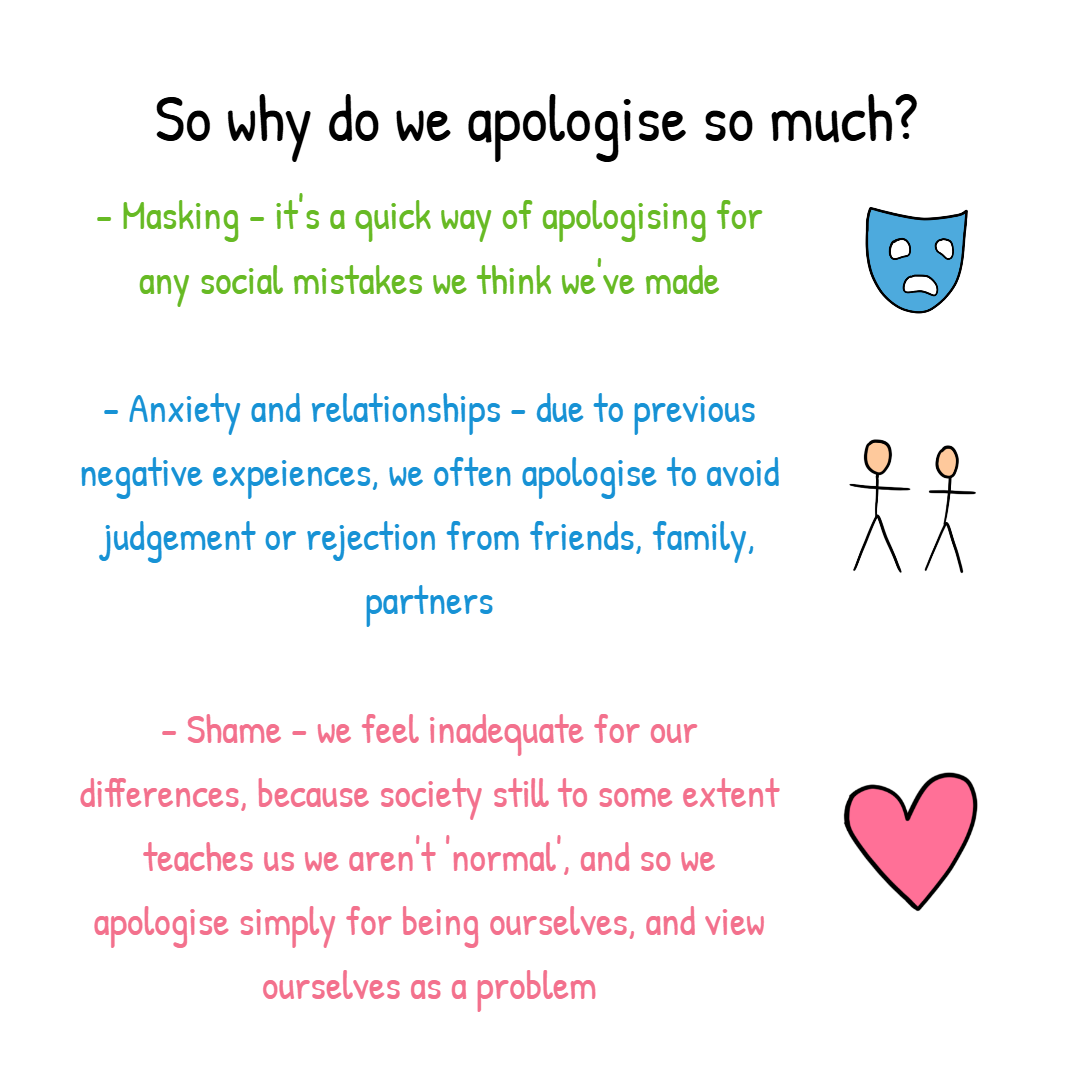
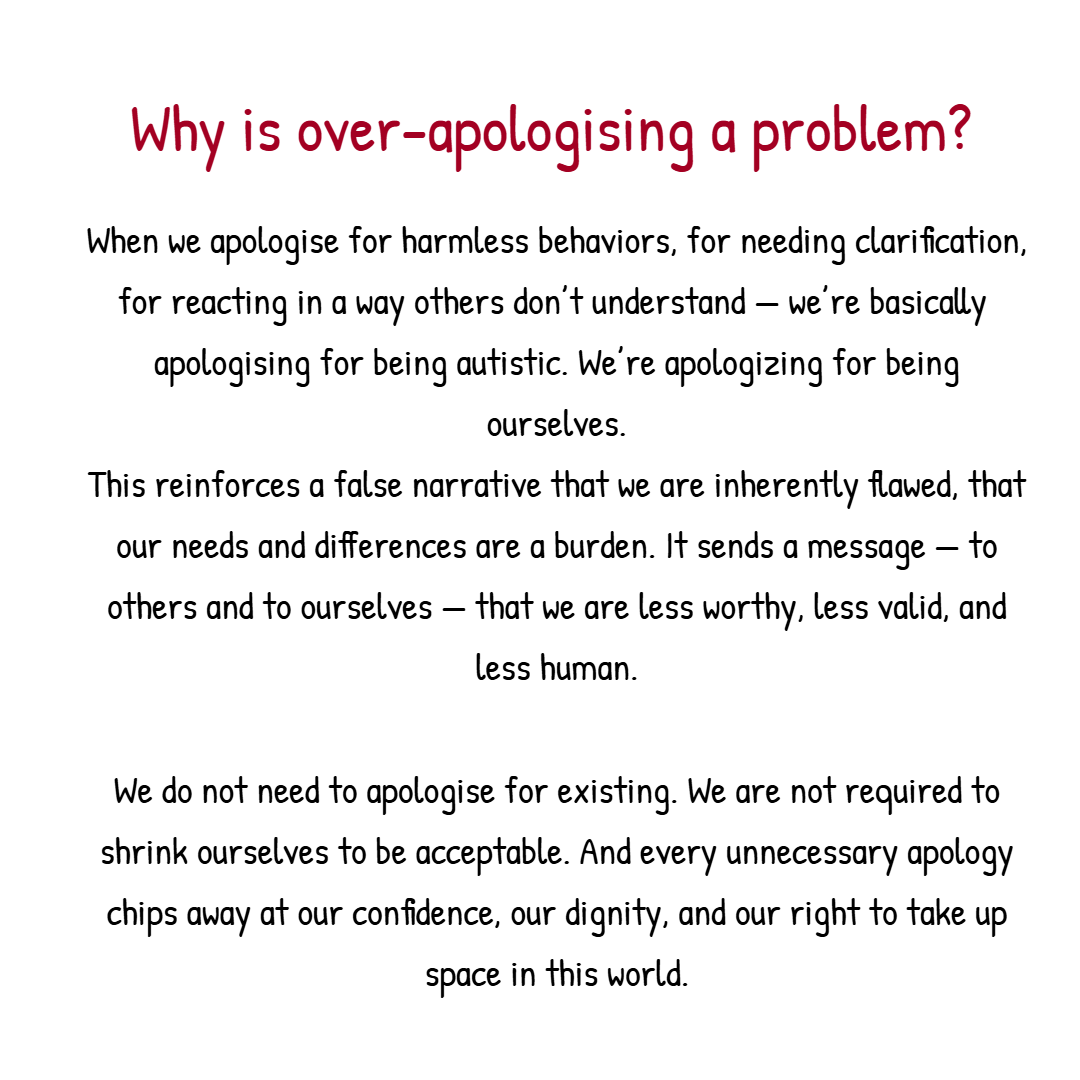
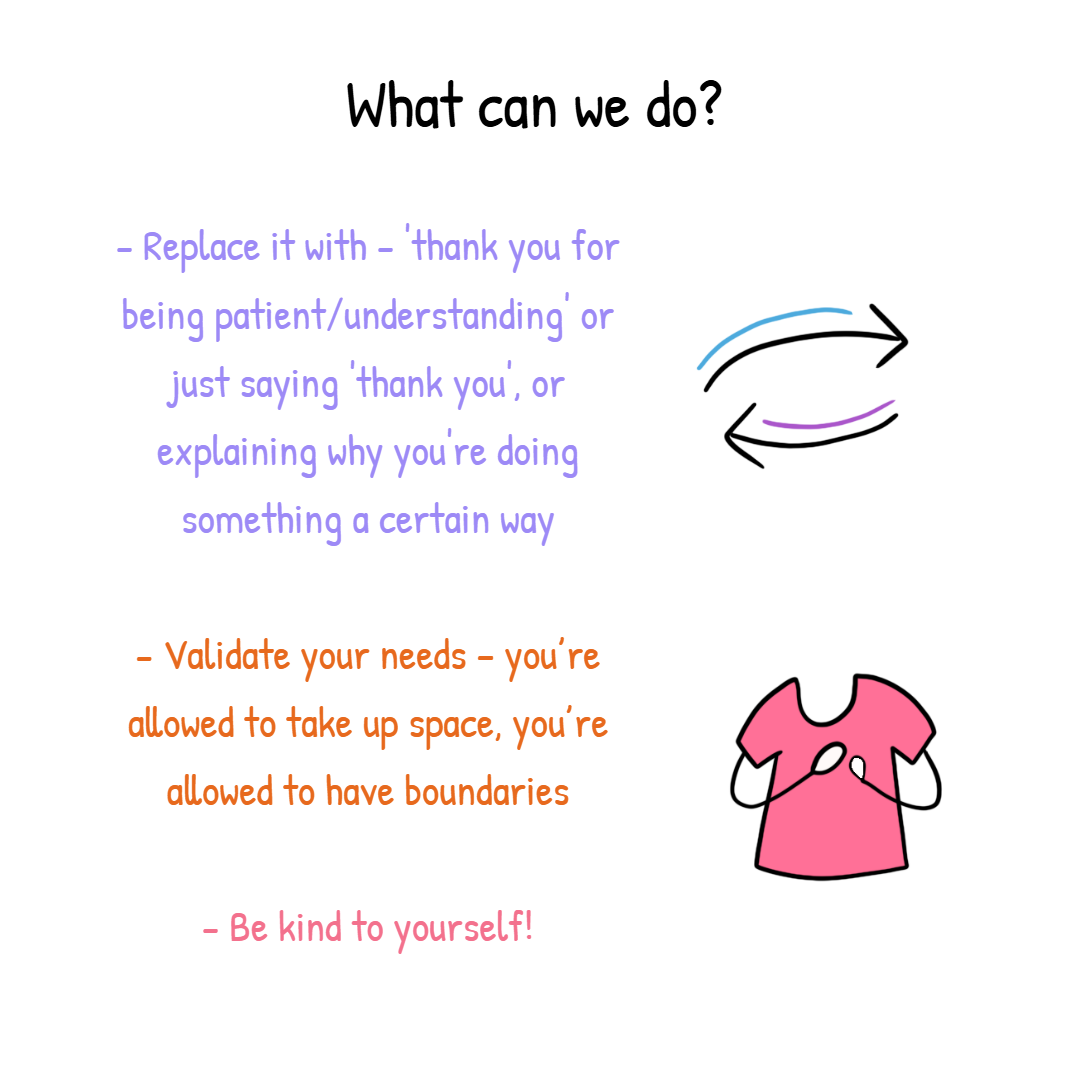
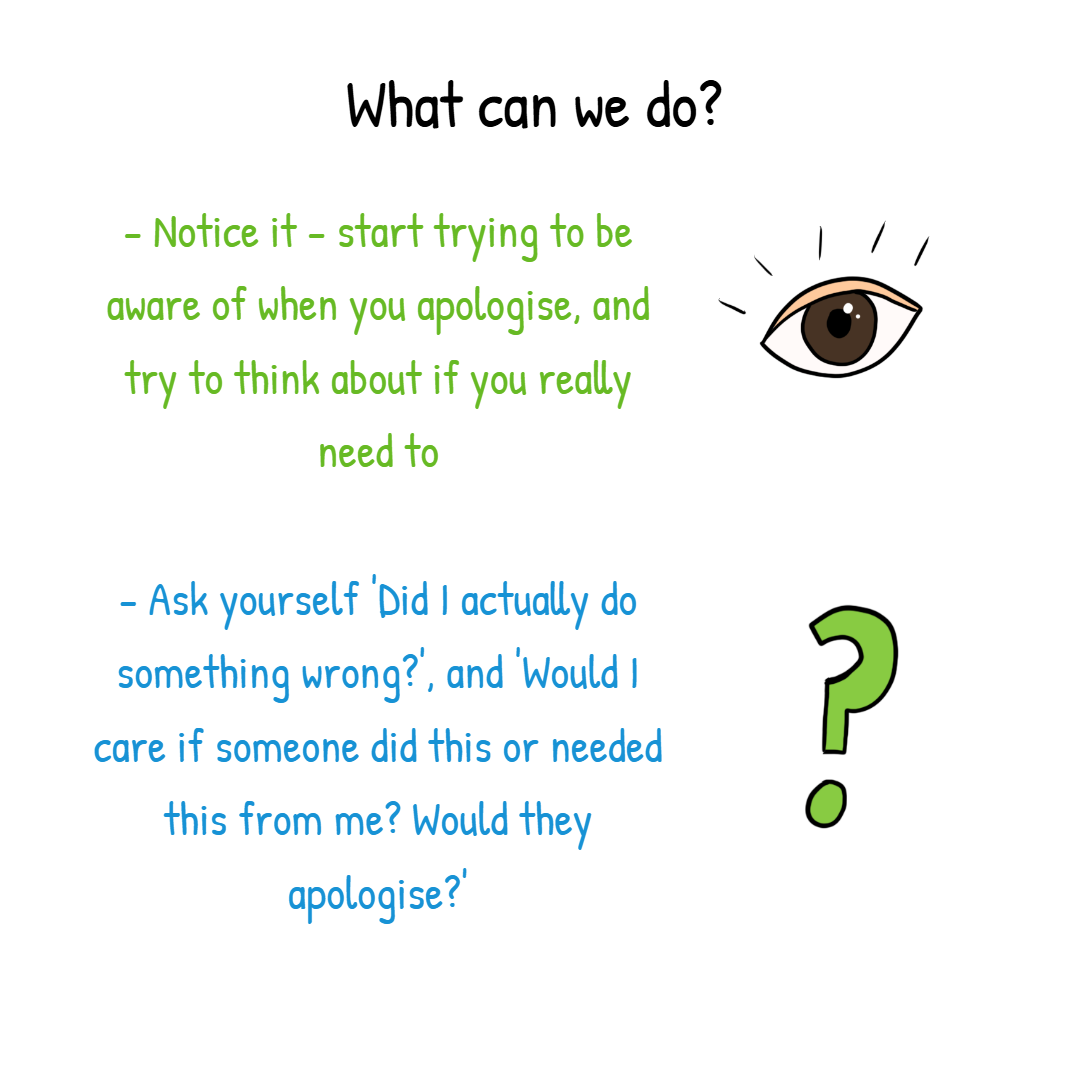
Leave a Reply